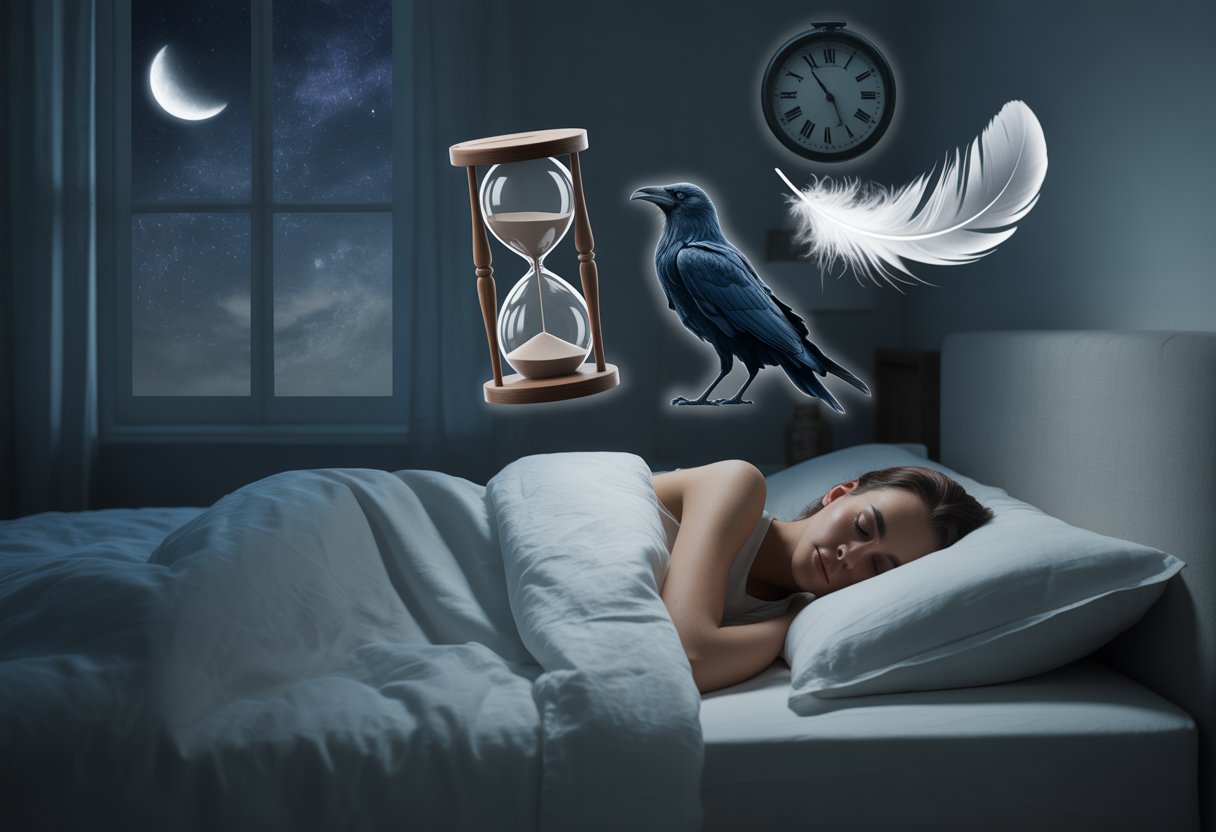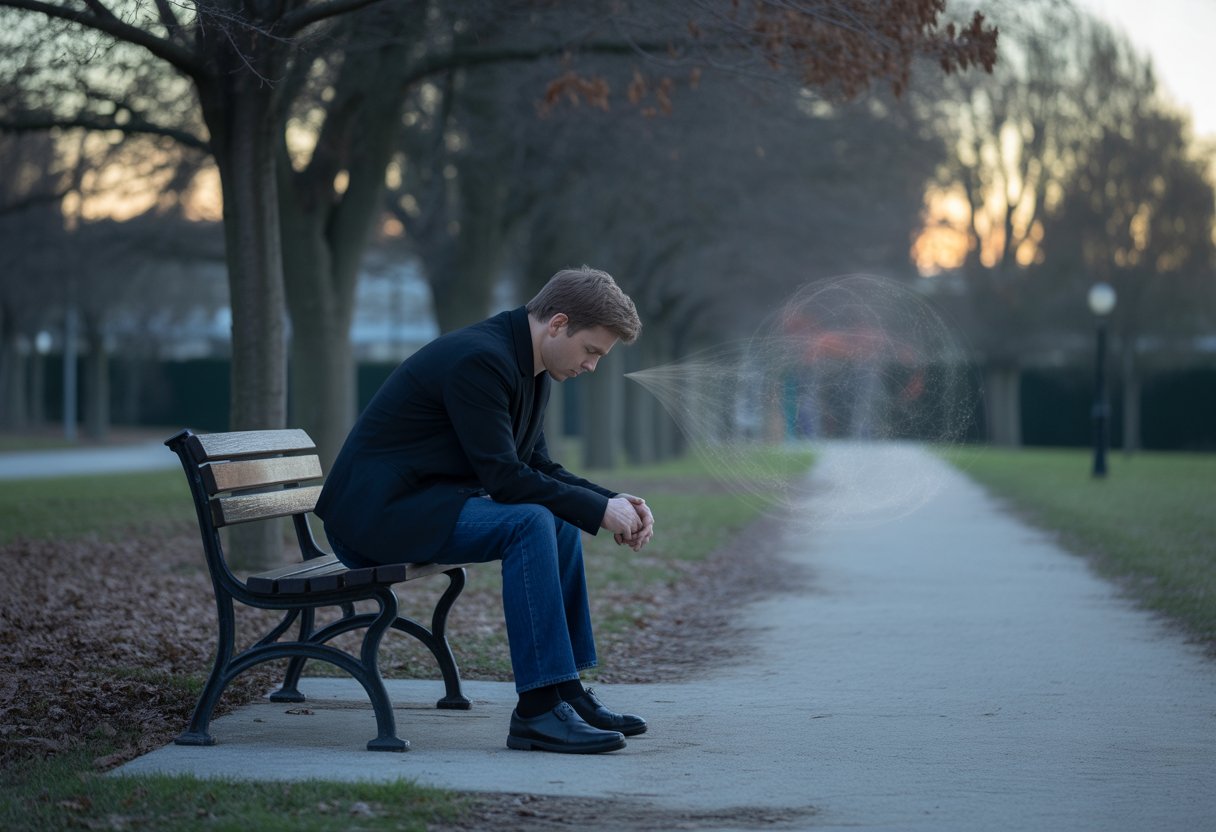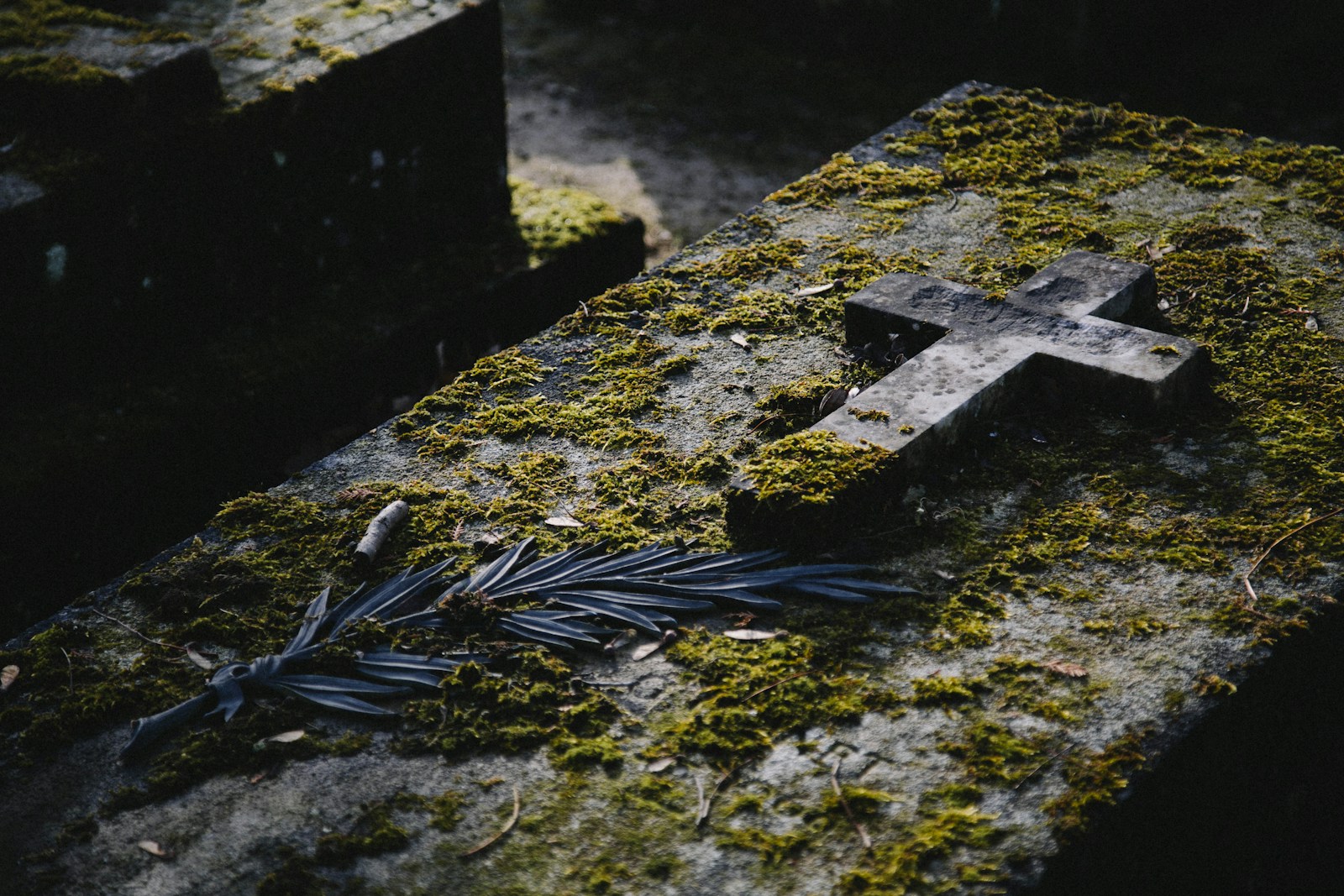Dreams about death can deeply unsettle people and leave them wondering if the dreams carry dark meanings or predictions.
Many individuals wake up from these vivid dreams feeling anxious or confused about what their subconscious might be trying to communicate.

Death dreams rarely predict actual death but instead symbolize transformation, major life changes, or the end of one phase and the start of another.
These dreams often reflect the dreamer’s psychological state, unresolved emotions, or significant transitions occurring in their waking life.
The meaning can vary depending on who dies in the dream, how the death occurs, and the emotions felt during the experience.
Understanding the psychological and symbolic meanings behind death dreams can help people process these intense experiences.
Exploring cultural interpretations and common dream scenarios provides valuable insight into the workings of the mind during sleep.
What Does It Mean to Dream About Death?
Death dreams represent deep psychological processes like transformation, fear, and personal growth.
These dreams often reflect major life changes or the mind’s way of processing difficult emotions.
Common Symbolism and Metaphors
Dreams about death typically symbolize endings and new beginnings rather than literal death.
The subconscious uses death as a metaphor for significant changes happening in someone’s life.
When a person dreams of their own death, they often feel like they’re making too many sacrifices without recognition.
It can also signal the need to end unhealthy habits or prioritize themselves.
Death dreams can relate to many different aspects of life, including the ending of important phases or overcoming bad habits.
An old person dying in a dream might represent shedding destructive patterns.
A child’s death in dreams often suggests the need to act more responsibly.
Parents frequently dream of their children dying when the kids are leaving home, symbolizing the end of childhood.
Common death dream symbols include:
- Death of spouse = lacking qualities the partner possesses
- Death of sibling = not spending enough time with family
- Finding a dead body = feeling detached from changes around them
- Unknown person dying = changes happening without personal involvement
Personal Transformation and Change
Dreams about death may indicate significant life changes or struggles with major transitions.
These dreams often appear during periods of personal growth or when someone is ready to leave old patterns behind.
Death in dreams frequently represents psychological transformation.
The mind uses death imagery to process the “death” of old versions of oneself and the birth of new identities.
Many people experience death dreams during major transitions like changing jobs, ending relationships, or moving to new places.
The dream reflects the psychological process of letting go of familiar situations.
Dreams of killing someone often indicate that guilty feelings or bad judgment from the past are returning to cause distress.
This represents the need to confront and resolve past mistakes.
Fear and Anxiety Reflected in Death Dreams
Death dreams are particularly common in people prone to anxiety and depression, especially when they regularly dream of their own deaths.
These dreams often use familiar symbols and substitute them with death imagery.
Dreams of parents dying when they’re still alive typically reflect unconscious worries about losing them in the future.
This fear becomes stronger when parents are elderly or facing health issues.
Anxiety-related death dreams often feature:
- Violent or frightening deaths
- Recurring nightmares about dying
- Dreams about loved ones being in danger
- Feeling helpless during the death scene
Recurring dreams about violent or frightening death could indicate unresolved fears or internal conflicts.
These dreams persist until the underlying anxiety is addressed.
Fear of death dreams sometimes reflect broader anxieties about loss of control, major life changes, or feelings of vulnerability.
The mind processes these fears through death imagery during sleep.
Dreams about already deceased people can warn that someone is being influenced by wrong people in their life.
They may also signal that unresolved situations need closure.
Psychological Interpretations of Death Dreams
Psychologists view death dreams as the mind’s way of processing complex emotions and life changes.
These dreams often surface during periods of stress, loss, or significant transitions when the subconscious needs to work through difficult feelings.
Processing Grief or Loss
Death dreams frequently appear when someone is processing grief and loss after losing a loved one.
The mind uses these dreams to work through the stages of mourning.
Dreams about deceased family members or friends often feel extremely real.
The dreamer might have conversations with the dead person or see them in familiar settings.
Common grief-related dream patterns include:
- Conversations with the deceased offering comfort
- The dead person appearing healthy and at peace
- Recreating memories from when they were alive
- The deceased giving advice or guidance
These dreams serve as a bridge between the conscious mind struggling with loss and the need for emotional healing.
They allow people to maintain a connection with loved ones who have passed away.
The brain processes unresolved feelings through these vivid encounters.
Many people report feeling comforted after dreaming of deceased relatives, suggesting the dreams fulfill an important psychological function.
Coping With Major Life Transitions
Death dreams often occur during major life changes when old patterns must “die” for new ones to emerge.
The mind uses death symbolism to represent the end of one life phase and the beginning of another.
Transitions that commonly trigger death dreams:
- Career changes or job loss
- Divorce or relationship endings
- Moving to a new city
- Children leaving home
- Retirement
Dreams about one’s own death rarely predict actual death.
Instead, they represent the psychological death of an old identity.
Someone starting a new career might dream of their former professional self dying.
Dreams about death during transitions help the mind process anxiety about change.
The fear of losing familiar aspects of life gets expressed through death imagery.
These dreams can also represent personal growth.
The subconscious acknowledges that transformation requires letting go of outdated beliefs or behaviors.
Unresolved Emotions and Internal Conflict
Death dreams sometimes reveal suppressed emotions or internal conflicts that need attention.
The mind creates dramatic scenarios to force the dreamer to confront difficult feelings.
Dreams about killing someone might represent anger toward that person in real life.
The dreamer’s conscious mind might not acknowledge these hostile feelings directly.
Emotional conflicts expressed through death dreams:
- Anger – Dreams of violence or murder
- Guilt – Dreams of being killed as punishment
- Fear – Dreams of random or sudden death
- Shame – Dreams of public or embarrassing death
People with post-traumatic stress disorder often experience recurring death dreams related to their trauma.
These nightmares replay threatening situations as the brain attempts to process the overwhelming experience.
Dream interpretation requires careful consideration of the dreamer’s personal circumstances and emotional state.
The specific details and feelings in the dream provide clues about which internal conflicts need resolution.
Fear of death itself can manifest in death dreams, especially during times of illness or aging.
These dreams help people gradually confront mortality anxiety in a safe mental space.
Common Types of Death Dreams
Death dreams take many forms, from experiencing your own death to witnessing the death of family members or strangers.
Dreams about death are fairly common and typically represent transformation, unresolved emotions, or major life changes.
Dreaming About Your Own Death
Dreams where you experience your own death often feel intense and frightening.
These dreams rarely predict actual death.
Instead, they usually signal major personal changes or transformations happening in your life.
Your own death in dreams can represent the end of one phase and the beginning of another.
This might include changing jobs, ending relationships, or moving to a new place.
Some people dream about dying during stressful periods.
The dream may show your fears about losing control or feeling overwhelmed by life circumstances.
Common scenarios include:
- Being killed by someone else
- Dying from illness or accident
- Experiencing a peaceful death
- Dying and watching your own funeral
These dreams can also reflect anxiety about aging or health concerns.
They sometimes occur when people feel stuck and need to make significant changes.
Dreaming of a Loved One’s Death
Dreaming about the death of family members or close friends creates strong emotional reactions.
These dreams typically reflect your relationship with that person rather than any real danger to them.
Dreams may indicate a current struggle with grief or fear of losing someone important.
They can also represent changes in your relationship with that person.
Sometimes these dreams occur when you feel distant from a loved one.
The death might symbolize the end of a particular dynamic between you both.
These dreams might mean:
- Fear of abandonment or loss
- Unresolved conflicts with that person
- Changes in your relationship
- Processing grief from past losses
Parents often dream about their children dying during times of stress or major life transitions.
These dreams usually reflect parenting anxieties rather than actual threats.
Recurring Death Dreams
Recurring death dreams may signal unresolved trauma, anxiety, or mental health concerns.
When the same death-related dream happens repeatedly, it often indicates unfinished emotional business.
These dreams demand attention because your subconscious is trying to process something significant.
The repetition means the underlying issue remains unresolved.
Common patterns include:
- The same person dying repeatedly
- Dying in the same way each time
- Similar death scenarios with minor variations
- Increasing intensity over time
Recurring dreams about death frequently connect to major life stress, trauma, or depression.
They may continue until you address the underlying emotional issues causing them.
Professional help can be valuable when these dreams interfere with sleep quality or daily functioning.
Death of Strangers or Unknown People
Dreams featuring the death of strangers or unknown people often represent aspects of yourself or your life situation.
These mysterious figures typically symbolize parts of your personality or life circumstances.
The stranger’s death might represent letting go of old habits, beliefs, or ways of thinking.
It can signal that you’re ready to abandon outdated parts of yourself.
These dreams often symbolize:
- Ending bad habits or negative patterns
- Letting go of limiting beliefs
- Releasing fear or anxiety
- Personal growth and development
Sometimes the unknown person represents opportunities or possibilities that are ending.
The death shows that certain paths are no longer available to you.
These dreams can feel less emotionally intense than dreams about people you know.
However, they still carry important messages about personal transformation and change.
Symbolic Representations in Death Dreams

Death dreams contain powerful symbols that carry specific meanings beyond the literal act of dying.
These symbolic elements help decode deeper messages about transformation, endings, and personal growth that the subconscious communicates through death dreams.
Funerals and Burials
Funeral dreams represent the formal end of a life chapter or relationship. The ceremony symbolizes acceptance of change and the need to honor what is ending.
When people attend a funeral in a dream, they often process grief or loss. This could involve mourning the end of a job, friendship, or personal identity.
The funeral setting gives the mind a safe space to work through these feelings.
Key funeral symbols include:
- Flowers – represent beauty in endings and memories
- Caskets – symbolize containing or hiding emotions
- Mourning clothes – indicate formal recognition of loss
Burial dreams focus on letting go completely. Burying something in a dream means putting it to rest permanently.
This symbol appears when the dreamer needs to stop holding onto past hurts or outdated beliefs.
Dreams of being buried alive suggest feeling trapped or overwhelmed in waking life. The earth covering the dreamer stands for pressures or responsibilities that feel suffocating.
Dead Bodies and Cemeteries
Dead bodies in dreams rarely represent actual death. They symbolize parts of the self that have died or need to die for growth to occur.
Seeing your own dead body signals major personal transformation. The old version of yourself is gone, making room for new growth.
Common dead body symbols:
- Decomposition – natural process of releasing the old
- Peaceful appearance – acceptance of necessary change
- Disturbing appearance – resistance to transformation
Cemetery dreams represent the resting place of past experiences. Walking through a graveyard means reviewing old memories or relationships that have ended.
Cemeteries can feel peaceful or frightening in dreams. Peaceful cemetery dreams indicate healthy processing of loss.
Scary cemetery dreams suggest unresolved grief or fear of change.
Talking to the Deceased
When people talk to dead individuals in dreams, these conversations often provide guidance or closure. Such interactions represent the dreamer’s inner wisdom or unfinished emotional business.
Speaking with deceased family members typically reflects the ongoing influence of their teachings or values. The conversation content reveals what guidance the dreamer seeks.
These dreams can bring comfort during difficult decisions.
Types of deceased conversations:
- Receiving advice – accessing inner wisdom
- Saying goodbye – finding closure
- Arguing – working through guilt or regret
When dead strangers offer advice, they represent the dreamer’s higher self or intuition. The stranger’s words often contain important insights about current life situations.
Happy deceased figures in dreams suggest the dreamer has processed their loss. Sad or angry deceased figures may indicate unresolved grief needing attention in waking life.
Emotional Impact and Aftereffects of Death Dreams

Death dreams can trigger intense emotional responses that persist long after waking. These dreams often cause jarring reactions that wake people up with pounding hearts and adrenaline rushes, leading to lasting fear, mood changes, and physical symptoms.
Lingering Fear or Anxiety
Death dreams frequently leave people with persistent worry about their own mortality or the safety of loved ones. The vivid nature of these dreams makes them feel real and threatening.
Many people check on family members after death dreams. They may call relatives or friends to ensure everyone is safe.
This behavior happens because the brain struggles to distinguish between dream experiences and reality immediately after waking.
Fear of death becomes more prominent in daily thoughts. Simple activities like driving or crossing streets may trigger anxiety.
People may avoid situations that remind them of the dream content.
Some individuals develop sleep anxiety, fearing they will have similar dreams again. This creates a cycle where worry about dreaming prevents restful sleep.
The lack of quality rest can make future dreams more intense and disturbing.
Behavioral and Mood Changes
People often experience mood shifts that last several hours or days after death dreams. Common changes include increased irritability, sadness, or emotional numbness.
Daily routines may become disrupted as the person processes the dream’s emotional content. They might avoid certain activities, places, or people that appeared in the dream.
Work performance and social interactions can suffer during this adjustment period.
Some individuals become more protective of loved ones. They may express affection more openly or spend additional time with family members.
Others withdraw socially, needing space to process their emotions.
Decision-making abilities can be temporarily impaired. The emotional weight of the dream makes it difficult to focus on routine tasks.
This fog typically clears within 24-48 hours for most people.
Physical Responses During and After the Dream
Death dreams can cause jarring physical reactions that wake people abruptly. Common immediate responses include:
- Rapid heartbeat and elevated blood pressure
- Sweating and difficulty regulating body temperature
- Muscle tension in the neck, shoulders, and jaw
- Shallow breathing or feeling breathless
These physical symptoms often continue for 10-30 minutes after waking. The body remains in a heightened state of alertness, making it difficult to return to sleep.
Headaches can develop from the sudden adrenaline surge and muscle tension. Some people experience nausea or stomach discomfort.
These symptoms result from the stress hormones released during the intense dream experience.
Fatigue may persist throughout the following day, even if the person eventually falls back asleep. The quality of remaining sleep is often poor due to continued anxiety and physical tension.
Cultural Perspectives on Dreaming of Death
Different cultures view death dreams in vastly different ways, from fearful omens in Western societies to positive symbols of transformation in Eastern traditions. These cultural beliefs provide frameworks for dream interpretation that shape how people understand their nocturnal experiences.
Western Interpretations
In Western cultures, death often represents a taboo subject that creates fear and discomfort. This cultural attitude strongly influences how people interpret death dreams.
Fear-Based Interpretations
Most Western interpretations focus on anxiety and loss. Dreams about death commonly represent:
- Fear of losing control
- Unresolved grief
- Concerns about mortality
- Psychological conflicts
Psychological Analysis
Western psychology views death dreams as symbolic rather than literal. Freudian analysis suggests these dreams represent repressed desires or internal conflicts.
Many Western psychologists believe death dreams signal necessary psychological transformations or prompt self-reflection about life choices.
The individualistic nature of Western society makes people focus on personal fears and anxieties when interpreting these dreams.
Eastern and Indigenous Views
Eastern philosophies and indigenous cultures approach death dreams with acceptance rather than fear. These traditions view death as part of natural cycles.
Eastern Philosophy
Buddhism and Hinduism teach that death represents transition, not ending. Eastern beliefs see death dreams as symbols of renewal and spiritual growth.
Key Eastern interpretations include:
- Rebirth and continuity – Death marks transformation to another state
- Letting go – Dreams encourage releasing attachments
- Spiritual growth – Death represents personal evolution
Indigenous Perspectives
Many indigenous cultures view death dreams as spiritual connections. These dreams provide opportunities to connect with ancestors or receive guidance from spiritual realms.
Indigenous interpretations emphasize community bonds and healing rather than individual fear.
Spiritual and Religious Beliefs
Religious traditions offer unique frameworks for understanding death dreams. These beliefs often provide comfort and meaning to dreamers.
Christianity and Western Religions
Christian interpretations vary but often focus on spiritual preparation or divine messages. Some view death dreams as calls for repentance or spiritual growth.
African and Latin American Traditions
Some African cultures interpret death dreams as warning signs that encourage addressing unresolved issues. Latin American traditions, influenced by both Catholicism and indigenous beliefs, often view dreams about deceased relatives positively.
Modern Spiritual Movements
Contemporary spiritual practices blend multiple traditions. Many people now combine Western psychology with Eastern spirituality when interpreting their death dreams.
This creates hybrid interpretations that view death dreams as both personal growth opportunities and spiritual messages.
Managing and Coping With Disturbing Death Dreams
People can manage death dreams through practical stress reduction techniques and knowing when to seek professional support. Some may require therapy if dreams persist or interfere with daily life.
Stress Management Tips
Dream journaling helps identify patterns and triggers in death dreams. People should write down their dreams immediately after waking to capture details.
This practice can reveal connections between daily stress and disturbing dreams about death.
Relaxation techniques before bed reduce the likelihood of intense dreams. Effective methods include:
- Deep breathing exercises for 5-10 minutes
- Progressive muscle relaxation
- Meditation or mindfulness practice
- Reading calming material
Sleep hygiene improvements create better rest conditions. People should maintain consistent bedtimes and avoid screens one hour before sleep.
Stress reduction during the day prevents anxiety from carrying into sleep. Regular exercise, limiting caffeine, and managing work stress all contribute to calmer nights.
For those with recurring dreams about death, visualization before sleep can help. They can imagine peaceful scenarios to replace disturbing images.
When to Seek Professional Help
Persistent disturbing dreams that continue for weeks require professional attention. Mental health professionals experienced in dream interpretation can provide specialized guidance.
Daily life interference signals the need for therapy. This includes avoiding sleep, difficulty concentrating at work, or relationship problems caused by dream-related anxiety.
Trauma-related death dreams often need professional treatment. People who have experienced loss or traumatic events may develop post-traumatic stress disorder, which requires specialized care.
Warning signs that indicate immediate help is needed:
- Panic attacks related to sleep
- Depression or hopelessness
- Avoiding sleep for multiple days
- Physical symptoms like headaches or stomach problems
Therapists can teach coping strategies and address underlying anxiety or grief causing the dreams.
Frequently Asked Questions
Death dreams carry different meanings depending on who dies in the dream and the dreamer’s relationship to that person. These dreams often reflect personal transformation, emotional processing, and spiritual growth rather than literal predictions.
What is the significance of dreaming about the death of a loved one?
Dreams about a loved one’s death typically represent fear of loss or changes in the relationship. The dreamer may worry about losing someone important in their life.
These dreams can also mean the relationship itself is changing. Perhaps the connection is growing stronger or moving in a new direction.
Sometimes these dreams help people process grief if the loved one has already died. The mind uses dreams to work through complex emotions about loss.
How can dreams about someone else’s death be interpreted?
When someone dreams about another person’s death, it often reflects the dreamer’s feelings about that person. The dream may show hidden anger, concern, or unresolved issues.
These dreams can represent the end of a particular dynamic with that person. The relationship might be shifting or certain behaviors might be changing.
Dreams about someone else’s death can indicate significant life changes the dreamer is experiencing. The other person’s death symbolizes transformation in the dreamer’s own life.
What are the spiritual implications of experiencing death in a dream?
Death dreams often carry spiritual meanings that reflect transformation and new beginnings rather than actual mortality. They represent the closing of one life chapter and the opening of another.
These dreams can signal spiritual awakening or personal growth. The dreamer may be ready to let go of old beliefs or patterns that no longer serve them.
Many spiritual traditions view death dreams as signs of renewal. They indicate the dreamer is moving toward a higher level of consciousness or understanding.
What does it mean when you dream about your own death?
Dreams about one’s own death usually symbolize major personal transformation. The dreamer may be going through significant changes in their identity or life circumstances.
These dreams can represent the end of old habits or thought patterns. The person might be ready to leave behind behaviors that hold them back.
Self-death dreams often occur during times of transition. Moving to a new city, changing jobs, or ending relationships can trigger these dreams.
Are early morning dreams about death symbolic of something in waking life?
Early morning dreams tend to be more vivid and memorable than dreams at other times. Death dreams during this period often feel more significant to the dreamer.
These dreams may reflect thoughts or worries that surface as the person prepares to wake up. The mind processes recent events and concerns through dream imagery.
Morning death dreams can represent fresh starts or new perspectives. They might signal readiness for change as the dreamer begins a new day.
Does dreaming about the death of a family member have a special meaning?
Family member death dreams often reflect family dynamics or the dreamer’s role within the family structure.
These dreams can show fears about family changes or conflicts.
Dreams about a parent’s death might represent growing independence or fear of losing guidance.
The dreamer may feel ready to take on more adult responsibilities.
Sibling death dreams can indicate rivalry or competition within the family.
They might also show the dreamer’s desire to stand out or be noticed more by parents.

Leave a Reply